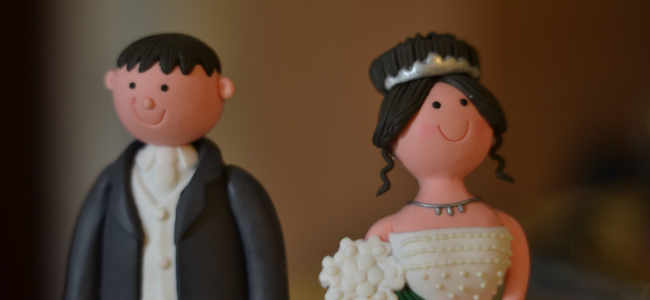When the Marriage (Same Sex Couples) Act passed in 2013 the issue of whether straight people should be allowed to enter into a civil partnership was quietly left to one side.
Given that civil partnerships were brought in by Tony Blair’s government in part to avoid having to call gay marriage “marriage”, it is understandable that many felt straight couples would have no need for the newfangled contract.
Yet this week Rebecca Steinfeld and Charles Keidan will dispute the government’s ban on straight civil partnerships in the Royal Courts of Justice, arguing that the discrimination breaches their rights to family life.
Online the couple also work on the Equal Civil Partnerships campaign, which pursues the same cause outside of the courts, and a number of MPs are working Parliament to the same ends.
So – to ask the obvious question – why exactly do Steinfeld and Keidan not want to get married?
The couple, which have just had a kid, told the Graun: “We […] want to raise our child as equal partners and believe that a civil partnership – a modern, symmetrical institution – best reflects our beliefs, and sets the best example for her.”
According to those of the Steinfeld/Keidan view, marriage is just too “patriarchal”, what with the bride being “given away”, the whole white “virgin” dress and the fact wives were for a long time viewed as the property of the man.
That modern marriage – with its provisions for divorce, tolerance of pre-marital sex and intolerance of rape – bears only symbolic resemblance to its previous incarnations appears to be a point that has passed the couple by.
Perhaps a more compelling argument is that civil partnerships and marriage, whilst similar, are not entirely identical.
As a government paper explains, some of the differences are ceremonial. Marriages are “solemnized” by saying a given set of words and can be brought about through a religious ceremony, whilst civil partnerships are signed off via a civil “formation” even if the ceremony is religious.
Lending some credence to the feminists’ dislike of marriage, only fathers are listed on the marriage certificate, but both mothers and fathers are listed on a civil partnership certificate.
And then one gets to the substantial differences. Whilst marriages can be annulled if one spouse was carrying a “venereal disease in communicable form” when it began, civil partners are not likewise protected.
Similarly adultery can be used as grounds for a divorce, but not the “dissolution” of a civil partnership. One suspects this is because one cannot commit “adultery” in a legal sense with somebody of the same sex (a point gay men and women might well take issue with).
There are also some discrepancies between how pensions are doled out, though as the government is equalising men and women’s retirement ages by 2018 it seems likely the numbers affected by this clause will be few in number.
So, ripping up the contract aside, marriages and civil partnerships are basically the same from a legal view.
Whilst making a mockery of the view that marriage is uniquely asymmetrical, this fact also weakens a further argument made by some MPs pushing the issue in parliament.
As Tim Loughton, the MP for East Worthing and Shoreham, pointed out when he tabled his bill to open civil partnerships to straight couples last October, there are indeed couples who want to have some legal contract together without getting married, some of whom mistakenly believe that living together grants them marriage rights in the UK after several years.
Yet clearly if civil partnerships are so similar to marriages such a vehicle would also be unsuitable for them. A man who does not want to be legally committed to a women via marriage is unlikely to be persuaded by another contract which is nearly identical.
Even so, Loughton makes one good point: “All that is required [for my proposal] is a simple one-line amendment to the Civil Partnership Act 2004.”
If we granted his wish at least the Royal Courts of Justice could spend the time doing some meaningful work.
Image Credit – Bride and groom figurines, June 2012 by David Precious
